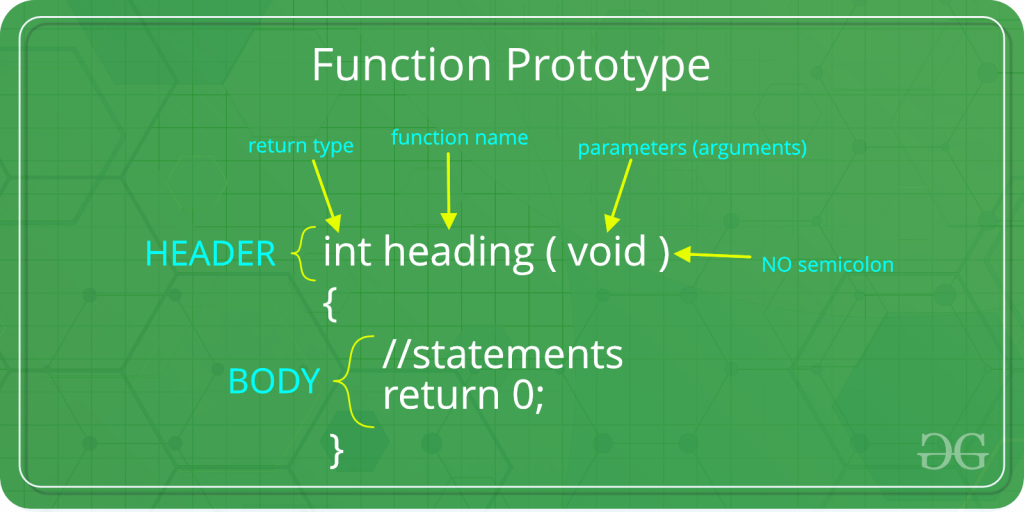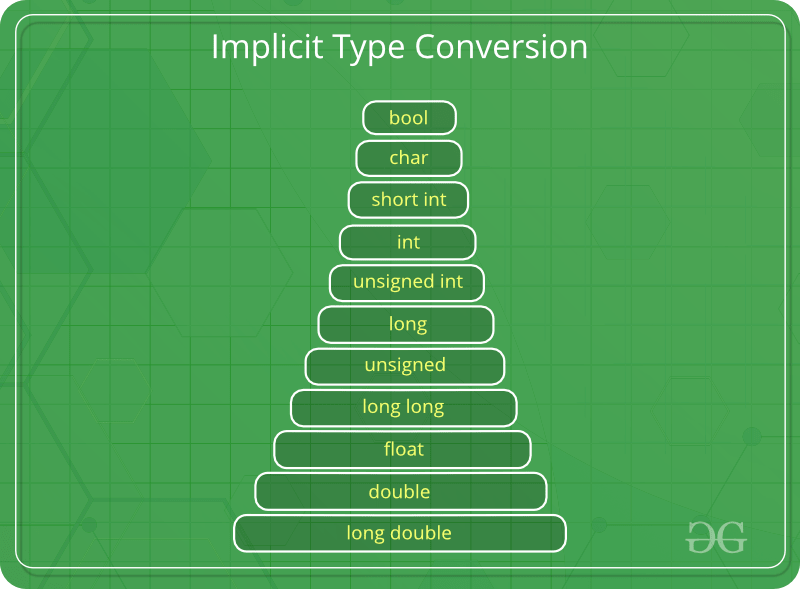Argument Coercion in C/C++
Last Updated :
26 Dec, 2018
Argument coercion is a feature of function prototypes by which the compiler implicitly converts the datatype of the arguments passed during the function call to match the datatype in the definition of the function.

It follows Argument promotion rules. Therefore a lower datatype maybe converted into a higher datatype but vice-versa is not true. This is because when a higher datatype is converted to a lower datatype it can result into loss or truncation of data.
The Promotion hierarchy for fundamental datatypes in C++ is:

Example: Take for Example the code given below consists of an add function that expects double arguments. But even when integer arguments are passed it works correctly. In case long double arguments are passed the code will give an error.
#include <iostream>
using namespace std;
double add(double a, double b)
{
return a + b;
}
int main()
{
cout << "Sum = " << add(2.4, 8.5) << endl;
cout << "Sum = " << add(16, 18) << endl;
return 0;
}
|
Share your thoughts in the comments
Please Login to comment...